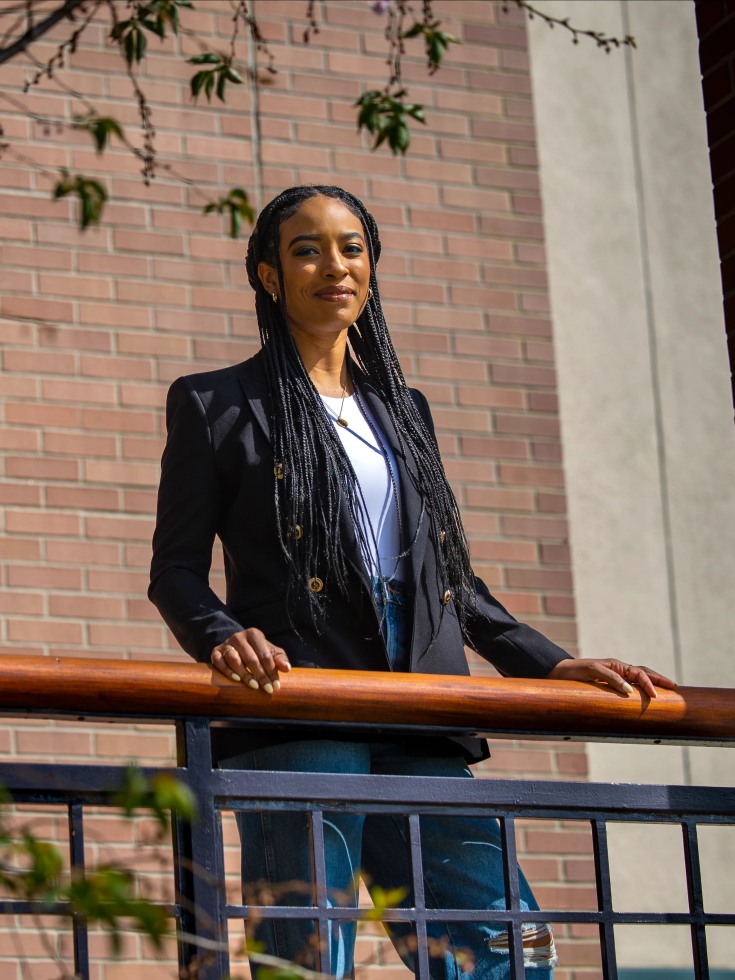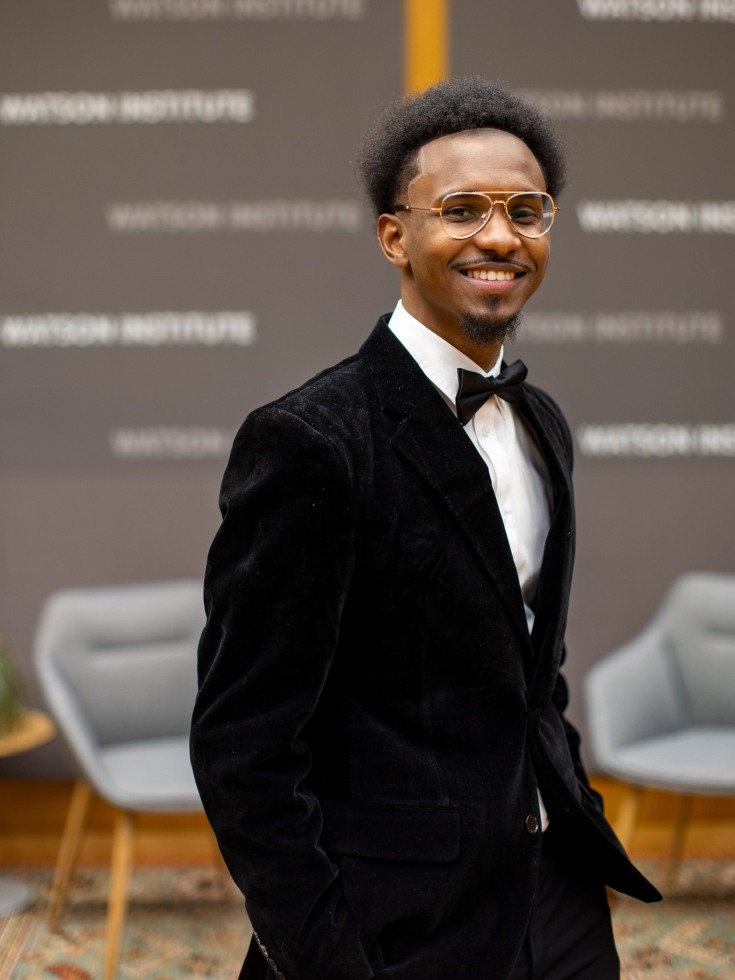PROVIDENCE, R.I. [Brown University] — Kathryn Thompson and Hamidou Sylla aren’t interested in rewriting history — they prefer to investigate the past and learn from it.
As Thompson reflects on completing her Ph.D. in health services research at Brown, she is moved by the students who paved the way for this year’s graduates, and the milestones and “firsts” still being achieved. Sylla, an aspiring policymaker earning a master of public affairs degree this year, draws inspiration from Brown’s efforts to confront its historical relationships to the slave trade and stand up to injustice and social inequities.
In keeping with Brown’s annual tradition of elevating student voices, the Graduate Student Council selected Thompson and Sylla, respectively, as this year’s graduate student speakers during Commencement.
During separate remarks at the Graduate School’s doctoral and master’s ceremonies on Sunday, May 28, the pair will address their peers, as well as thousands of family members and friends who attend in-person or watch the livestream. Thompson and Sylla will speak about the importance of honoring their predecessors while working to improve the lives of those who will follow them.
Khing Klangboonkrong, a graduate student in physics and chair of the Graduate Student Council’s nominations committee, said the group selected Thompson and Sylla because of the ways they uniquely tied the history of Brown into their own personal stories, in addition to being compelling and engaging speakers. As Commencement approaches, both students are preparing to celebrate the achievements of their classmates and call on them to effect change on the issues they are most passionate about.
“I’m focusing on us as a collective,” Thompson said. “This is a moment to reflect on what we’ve done and lived and learned and taught — which was no small feat during an entire pandemic — and celebrate all of our accomplishments.”


